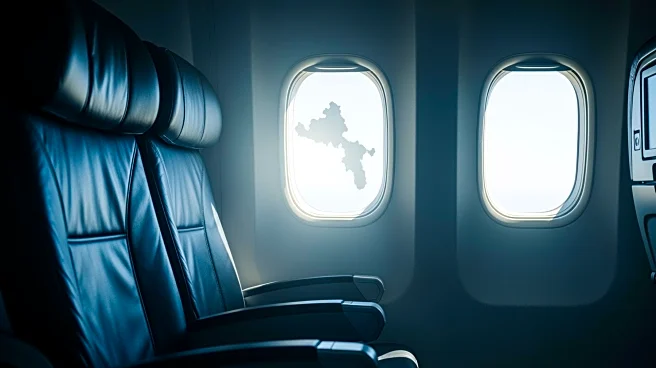What's Happening?
South Africa's Foreign Minister Ronald Lamola has raised concerns over a charter flight carrying 153 Palestinians from Gaza to Johannesburg, suggesting it is part of a broader agenda to clear Palestinians from Gaza and
the West Bank. The flight, which included a stopover in Kenya, has prompted an investigation by South African intelligence services. The South African government suspects Israel of orchestrating the operation, although the Israeli Coordinator of Government Activities in the Territories (COGAT) stated that the Palestinians had proper exit documentation and visas. This flight follows a previous one that landed in South Africa with over 170 Palestinians, raising further suspicions about the intent behind these flights.
Why It's Important?
The situation highlights ongoing tensions between South Africa and Israel, with South Africa historically supporting Palestinian causes. The allegations of a 'cleansing agenda' could strain diplomatic relations and impact international perceptions of Israel's policies towards Palestinians. If proven true, such actions could be seen as a violation of human rights, potentially leading to international condemnation and affecting Israel's diplomatic standing. The incident also underscores the complexities of geopolitical strategies involving the resettlement of populations, which could have broader implications for regional stability and international law.
What's Next?
South African President Cyril Ramaphosa has announced an investigation into the flights, which could lead to diplomatic actions or policy changes regarding future flights. The outcome of the investigation may influence South Africa's foreign policy and its stance on Middle Eastern affairs. Additionally, other countries may scrutinize similar flights, potentially leading to broader international discussions on the rights and treatment of displaced populations.
Beyond the Headlines
The incident raises ethical questions about the forced relocation of populations and the responsibilities of nations in protecting human rights. It also highlights the role of non-governmental organizations and international bodies in monitoring and addressing such issues. Long-term, this could influence global policies on migration and resettlement, as well as the accountability of nations in humanitarian crises.










